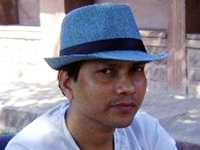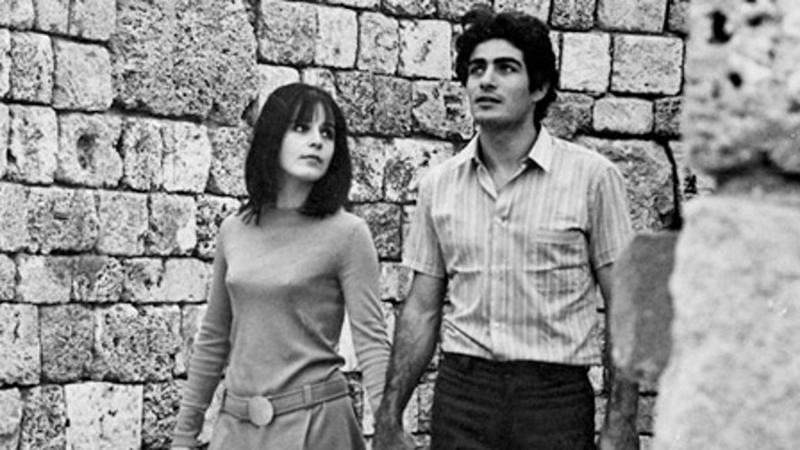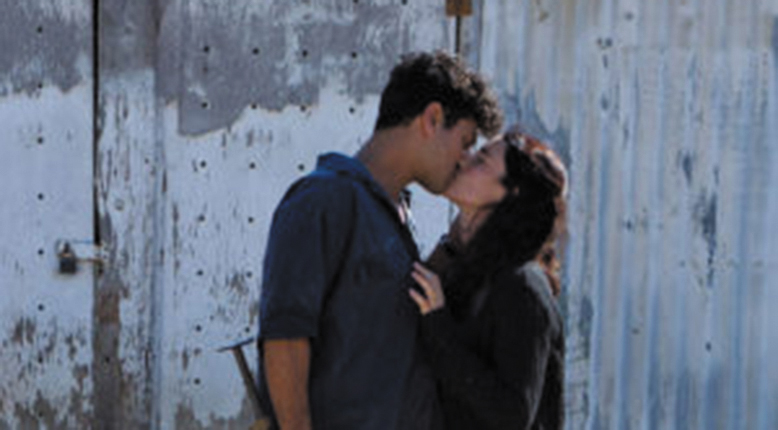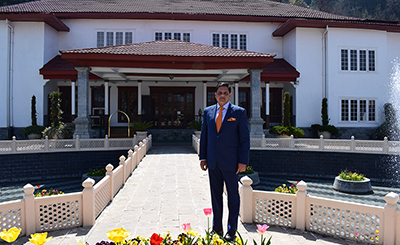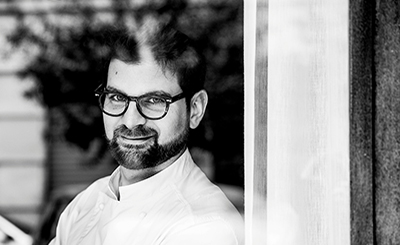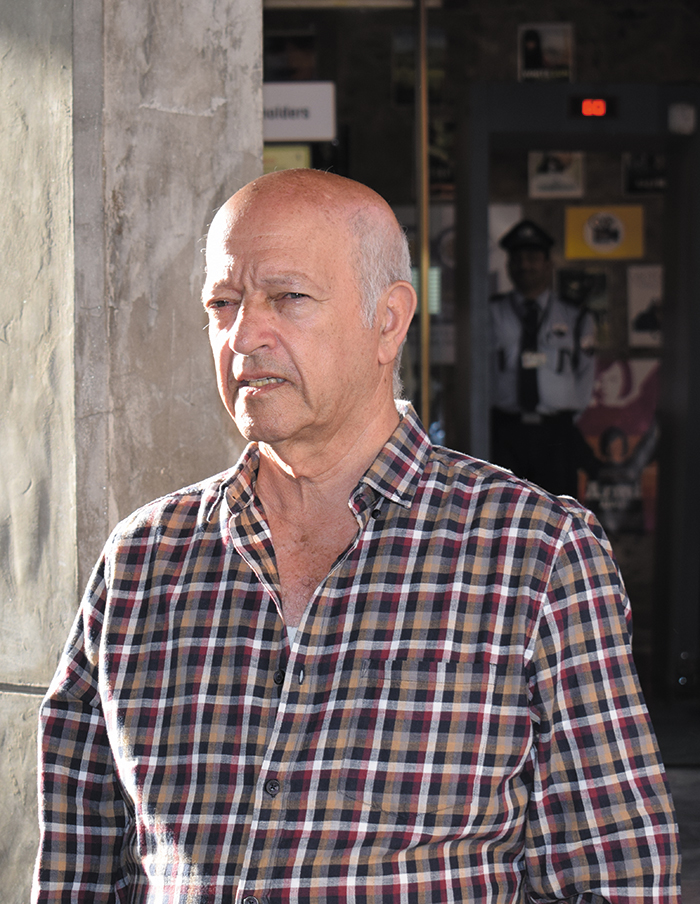
Dan Wolman in New Delhi. Photo: The Punch
Dan Wolman, veteran Israeli filmmaker, says he sees himself as a storyteller
Dan Wolman, veteran Israeli filmmaker, is the master of mise en scene. His films, noted for their depiction of the struggle between the individual and the society, have been presented in Cannes, Venice, Berlin, Shanghai, Goa, Moscow and many other film festivals.
Born in Jerusalem, Wolman spent the first years of his life in Ethiopia. After finishing high school in Jerusalem, he studied film in the US at the Film Institute of City College (1962 to 1965) and at New York University film department (1965-1968). In 1968, he returned to Israel and shot his first feature, The Dreamer, (released in 1970) a psychological film about a young man working at an old age home.
Over the years, Wolman has written and directed close to 20 features, many short films and documentaries.
In his films, Wolman portrays the struggles of individuals who dare to break with the norm against society for self-determination. His first two features, The Dreamer and Floch, deal with the plight of the elderly. In My Michael, a screen adaptation of Amos Oz’s famous novel, Wolman highlights the dreariness and loneliness in the lives of women. Two of his films, Hide and Seek and Tied Hands, examine homosexuality.
Wolman’s felicity with the medium is evident in films across genres — from a commercial youth comedy like Lemon Popsicle to the very personal The Distance and Foreign Sister, both of which won the Volgin Award for “Best Film” at the Jerusalem International Film Festival. Like Foreign Sister, Ben’s Biography expresses Wolman’s empathy and compassion for the weak and the suffering.
Wolman was in New Delhi recently for the screening of his film, An Israeli Love Story (2016), at the first Habitat International Film Festival. The film, set during the turbulent period of pre-state Israel in 1947-1948, is based on the true story of the love affair between Pnina Gary and Eli Ben-Zvi, the son of Rachel Yanait and Yitzhak Ben-Zvi, the second President of Israel.
Excerpt from an interview:
NAWAID ANJUM: How do you see yourself as a filmmaker? What aspects of the medium fascinate you?
DAN WOLMAN: I’m basically a storyteller. My fascination with storytelling started when I was a teenager. I was selected by the "Israeli Scout Federations" to be the counsellor of a group of 10-year-olds. I was fascinated by this art form and whenever I met them, which was like twice a week, I used to tell them a short story. I used to love playing roles and doing the effects… It also made me read a lot — stories by Anton Chekov, O. Henry, Guy de Maupassant, Rabindranath Tagore and many others. In Jerusalem, there were two blind boys in one of my groups and it was interesting and challenging to get them to envision my story. In a strange way — it was like making a film… I also like theatre and I enjoy working in it, but, for me, film is the most powerful way of storytelling.
NAWAID ANJUM: Tell us something about your early influences. How much of the different cultures and sensibilities seeped into your work?
DAN WOLMAN: When I was born, we were under the British rule. My father was in the Army and I didn’t get to see him much. My father’s absence affected me. I was brought to Ethiopia and I think that I was confused by the different languages — my mother spoke to me in German, some elders around me spoke English and Italian and my nanny spoke to me in Amharic (an Ethiopian Semitic language). So, for the first years of my life, I was exposed to a mixed salad of different languages and music — Ethiopian, English, Italian, German. Maybe, the fact that I feel at home only when I’m not at home, has to do with this salad which was my childhood.
Later, when we returned to Palestine in 1945, I started learning Hebrew. I was confused. I was not good in studies, my head was always somewhere else and I didn’t like to go by the rules. This gets reflected in my films too.
NAWAID ANJUM: When you made your first film, you were 26. What made you choose the subject — the complexities of old age — for The Dreamer, a sensitively directed film which was lauded for breaking new ground in Israeli cinema?
DAN WOLMAN: I was very uncomfortable with people in general and especially with people my age. When I was young, my personality was completely opposite to what you'd expect a director to be. I was shy. If somebody shook my hand, I would sweat. If I met strangers, I could hardly breathe. It took me a long time to get over it. I think this was one of the reasons my first films deal with old people.
It's funny, when the film finally came out in 1970 in Israel, people hated it. It ran for about two weeks and taken off the screens. I was shattered. But then, quite unexpectedly, it was selected to the competition section at Cannes Film Festival. Later, it did very well at Carnegie Hall cinema in New York and other places.
The second film, Floch (1972) was about an ageing couple whose son, daughter-in-law and child die in an accident. The old man’s wife is too old to bear a child, but he wants to have somebody to call after his name and starts looking for a young wife. It’s very much like a Greek tragedy. At that time I wrote and made these films without understanding where psychologically they came from — today I can analyse and speak about it — I guess the fact that fate has decided that the lead in my first two films will not have children — reflected my own fears then…
Page
Donate Now
More from Culture
Comments
*Comments will be moderated



